Tesla may not build a factory in China: Tesla may not be able to bring a factory to China under the appealing terms that had been reached with the government last fall, according to a Bloomberg report. CEO Elon Musk had been in talks about 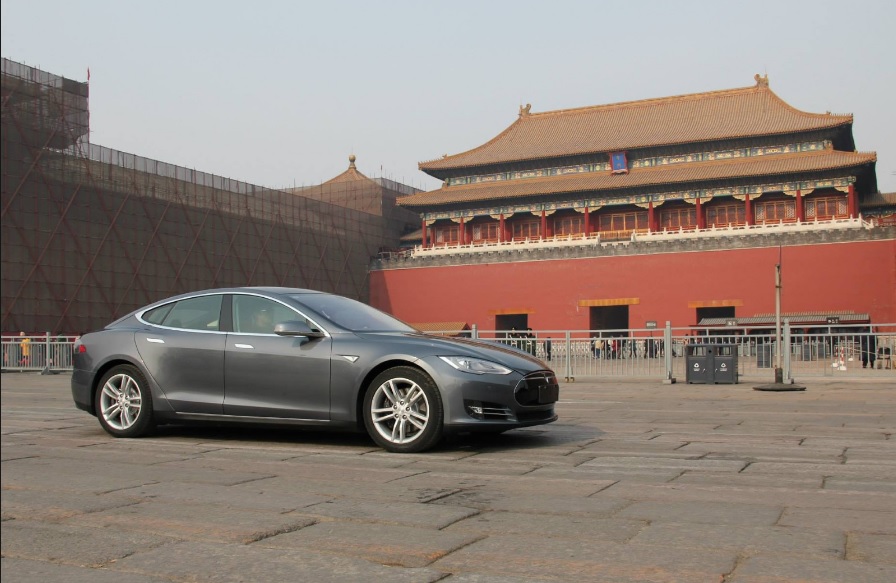 building an assembly plant in the Shangai area, but the two parties couldn’t reach an agreement on how the ownership structure would work. The national government wants it to be like all the others – a joint venture with local partners and Tesla wants to own the factory entirely. In October, Tesla had reached an agreement with the government in Shanghai to build a production facility in the city’s free-trade zone. Tesla would have been able to sidestep China’s steep tariffs by building a factory in the zone. Tesla has done well selling its electric cars in China, but an import tax of 25% raises the sticker price beyond what most consumers are willing to consider. A Tesla Model X made in the U.S. and shipped to China costs about 835,000 yuan ($132,000). Neither Tesla nor China responded to Bloomberg queries on the state of the potential agreement.
building an assembly plant in the Shangai area, but the two parties couldn’t reach an agreement on how the ownership structure would work. The national government wants it to be like all the others – a joint venture with local partners and Tesla wants to own the factory entirely. In October, Tesla had reached an agreement with the government in Shanghai to build a production facility in the city’s free-trade zone. Tesla would have been able to sidestep China’s steep tariffs by building a factory in the zone. Tesla has done well selling its electric cars in China, but an import tax of 25% raises the sticker price beyond what most consumers are willing to consider. A Tesla Model X made in the U.S. and shipped to China costs about 835,000 yuan ($132,000). Neither Tesla nor China responded to Bloomberg queries on the state of the potential agreement.
Evolution offers information resources for EV shoppers: For those of you thinking about buying a plug-in vehicle in the Midwest, or need resources for marketing them, check out EVolution: Choices for a Smarter Purchase. Consumers interested in buying an all-electric or plug-in hybrid vehicle can check out a new-vehicle purchase guidance tool created by Argonne National Laboratory. The EVolution website connects to the Alternative Fuels Data Center, FuelEconomy.gov, U.S. Energy Information Administration websites, and others in one convenient platform to provide the most recent information about electric-drive and conventional powertrain types, public charging locations, and available incentives. Argonne National Laboratory designed the research tool as a part of the seven-state Midwest EVOLVE project, providing information on buying an EV in Illinois, Indiana, Michigan, Minnesota, North Dakota, Ohio, or Wisconsin. Midwest EVOLVE is a partnership between the American Lung Association and eight Clean Cities coalitions in the Midwest to educate consumers about the clean-air and performance advantages of plug-in electric and hybrid vehicles.
Shared Mobility Principles for Livable Cities: While autonomous vehicles has become the leading edge issue in the auto industry, the question always comes up about how companies will be able to build viable, 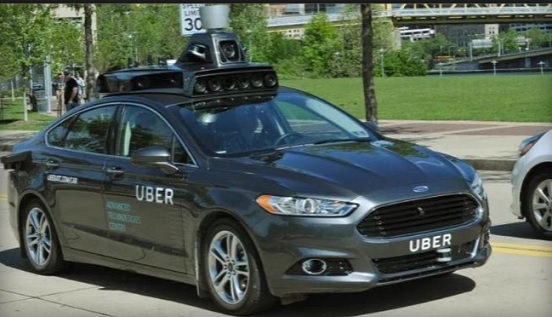 profitable business models and meet demands for real-world transportation. That would include doing it safely and addressing public concerns about how realistic self-driving cars would be to release on our roads.
profitable business models and meet demands for real-world transportation. That would include doing it safely and addressing public concerns about how realistic self-driving cars would be to release on our roads.
In the past year, the topic of robotaxis has been the focus, with automakers forging alliances with tech giants and mobility service companies. The business model is appealing to many, as it could meet future demand for transportation in increasingly crowded, traffic-packed, air-polluted cities. Consumers may not want to own autonomous vehicles as much as they’d be willing to take an Uber or Lyft ride driven by a robot.
The Shared Mobility Principles for Livable Cities was launched last year and led by Robin Chase, a Zipcar co-founder. Earlier this month, the organization brought in 15 leading technology and transportation companies and adopted a set of rules and principles addressing equity, environmental, and social concerns. The companies – Uber, Lyft, BlaBlaCar, Citymapper, Didi, Keolis, LimeBike, Mobike, Motivate, Ofo, Ola, Scoot Networks, Via, and Zipcar – account for 77 million passenger trips per day and inform the travel decisions of 10 million people each day, according to a statement released by the World Resources Institute, the organization which facilitated the agreement.
The Shared Mobility Principles for Livable Cities was launched in October 2017 at the Ecomobility World Festival in Taiwan. It was initially signed by policy think tanks and advocacy organizations, including Transportation for America, Natural Resources Defense Council, ITDP, the World Resources Institute, and the Rocky Mountain Institute. The organization has written 10 non-binding principles in the statement offering a vision for a sustainable mobility future that incorporates multimodal transportation options.




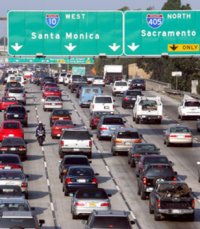 San Francisco, Atlanta, and Miami. The ranking is based on analysis of the total cost to average drivers in wasted time and fuel cost. Indirect costs are included that affect businesses operating in those cities who pass their increased costs from congestion on to consumers through higher prices. Thailand leads with the highest average hours spent in peak congestion (56 hours), surpassing Indonesia (51 hours), Columbia (49 hours), Venezuela (42), with the U.S. and Russia both at 41 hours. The INRIX study found that traffic congestion costed U.S. drivers nearly $305 billion last year, averaging about $1,445 per driver. While other countries have high-speed rail and other transportation modes (including biking), the U.S. seems to be looking at finding a good balance, long term, between mobility services, autonomous vehicles, and clean vehicles, to deal with the congestion and air pollution problems.
San Francisco, Atlanta, and Miami. The ranking is based on analysis of the total cost to average drivers in wasted time and fuel cost. Indirect costs are included that affect businesses operating in those cities who pass their increased costs from congestion on to consumers through higher prices. Thailand leads with the highest average hours spent in peak congestion (56 hours), surpassing Indonesia (51 hours), Columbia (49 hours), Venezuela (42), with the U.S. and Russia both at 41 hours. The INRIX study found that traffic congestion costed U.S. drivers nearly $305 billion last year, averaging about $1,445 per driver. While other countries have high-speed rail and other transportation modes (including biking), the U.S. seems to be looking at finding a good balance, long term, between mobility services, autonomous vehicles, and clean vehicles, to deal with the congestion and air pollution problems. Green Auto Market’s six year anniversary. The newsletter had started out prior as Green Automotive Digest with its Green Machine Digest blog. It became Green Auto Market in February 2012 with emphasis on the emerging business of clean vehicles, infrastructure, fuels and energy, advanced technologies, and the economic and political context behind all of it. It was monthly at that time, and went to weekly in June 2013 to a much longer list of readers. Special thanks to Editorial Advisory Board members for participating in monthly conference calls in recent years, especially Craig Shields, 2GreenEnergy; Peter Ward, Alternative Fuels Advocates, LLC; Joe Stergios and Greg Tabak, Enterprise Holdings; and Michael Taylor, Propane Education & Research Council.
Green Auto Market’s six year anniversary. The newsletter had started out prior as Green Automotive Digest with its Green Machine Digest blog. It became Green Auto Market in February 2012 with emphasis on the emerging business of clean vehicles, infrastructure, fuels and energy, advanced technologies, and the economic and political context behind all of it. It was monthly at that time, and went to weekly in June 2013 to a much longer list of readers. Special thanks to Editorial Advisory Board members for participating in monthly conference calls in recent years, especially Craig Shields, 2GreenEnergy; Peter Ward, Alternative Fuels Advocates, LLC; Joe Stergios and Greg Tabak, Enterprise Holdings; and Michael Taylor, Propane Education & Research Council.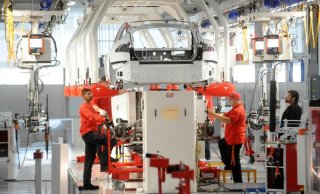 $619.4 million, or $3.70 per share, in the previous quarter but it was smaller than analysts had expected. Revenue was higher than expected at $3.29 billion in Q4, a nearly 10% increase from Q3 of last year. The company is taking a positive outlook for 2018, with the planned ramp of both the Model 3 and its energy storage products that should drive a revenue growth rate much higher than last year’s rate. The company’s cash balance remained stable last quarter even with the Model 3 production increasing, and not at the level originally planned by Tesla.
$619.4 million, or $3.70 per share, in the previous quarter but it was smaller than analysts had expected. Revenue was higher than expected at $3.29 billion in Q4, a nearly 10% increase from Q3 of last year. The company is taking a positive outlook for 2018, with the planned ramp of both the Model 3 and its energy storage products that should drive a revenue growth rate much higher than last year’s rate. The company’s cash balance remained stable last quarter even with the Model 3 production increasing, and not at the level originally planned by Tesla. 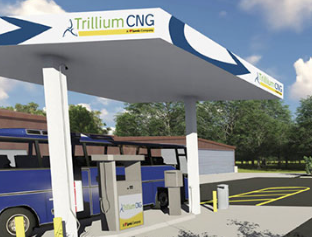 and microgram design and construction. The first hydrogen station will supply fuel cell buses starting this summer for the Orange County Transportation Authority’s (OCTA) Santa Ana, Calif., facility. Transit buses will be able to tap into 35 kilograms of hydrogen per bus in 6 to 10 minutes simultaneously from two fueling lanes. The station will be able to fuel the current 10 fuel cell buses and can go up to 50 buses. Infrastructure will be added to OCTA’s existing CNG fueling lanes. The current CNG station was designed and built by
and microgram design and construction. The first hydrogen station will supply fuel cell buses starting this summer for the Orange County Transportation Authority’s (OCTA) Santa Ana, Calif., facility. Transit buses will be able to tap into 35 kilograms of hydrogen per bus in 6 to 10 minutes simultaneously from two fueling lanes. The station will be able to fuel the current 10 fuel cell buses and can go up to 50 buses. Infrastructure will be added to OCTA’s existing CNG fueling lanes. The current CNG station was designed and built by 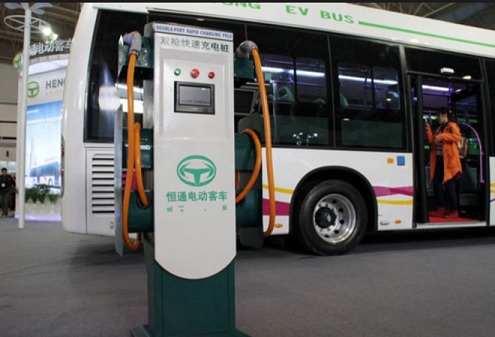 Bloomberg New Energy Finance. That will mean last year’s 386,000 units sold will go up to 1.2 million in the next seven years. Strong domestic support and aggressive city-level targets will mean China accounts for 99% of the world’s battery-powered buses by 2025, the report said. Last year’s electric bus sales dropped from 115,700 sold in China in 2016 to 89,546 last year due to policy changes and incentives being cut back during that time. This year will see changes as policy from national and local/city governments start to collide,
Bloomberg New Energy Finance. That will mean last year’s 386,000 units sold will go up to 1.2 million in the next seven years. Strong domestic support and aggressive city-level targets will mean China accounts for 99% of the world’s battery-powered buses by 2025, the report said. Last year’s electric bus sales dropped from 115,700 sold in China in 2016 to 89,546 last year due to policy changes and incentives being cut back during that time. This year will see changes as policy from national and local/city governments start to collide,  consumers and fleets make sound purchase decisions. One of these will be taking place February 10-19 during the 2018 Chicago Auto Show, where attendees will have the chance to test drive vehicles such as the all-new 2018 Nissan Leaf, 2018 Chrysler Pacifica Hybrid, and 2018 Mitsubishi Outlander PHEV. Chicago Area Clean Cities Coalition is hosting the test drives in partnership with the Midwest EVOLVE program. The American Lung Association is a key sponsor to Midwest EVOLVE. The Clean Cities partners include Twin Cities Clean Cities Coalition, Chicago Area Clean Cities, Clean Fuels Ohio, Earth Day Coalition, Greater Lansing Area Clean Cities, North Dakota Clean Cities, South Shore Clean Cities, and Wisconsin Clean Cities.
consumers and fleets make sound purchase decisions. One of these will be taking place February 10-19 during the 2018 Chicago Auto Show, where attendees will have the chance to test drive vehicles such as the all-new 2018 Nissan Leaf, 2018 Chrysler Pacifica Hybrid, and 2018 Mitsubishi Outlander PHEV. Chicago Area Clean Cities Coalition is hosting the test drives in partnership with the Midwest EVOLVE program. The American Lung Association is a key sponsor to Midwest EVOLVE. The Clean Cities partners include Twin Cities Clean Cities Coalition, Chicago Area Clean Cities, Clean Fuels Ohio, Earth Day Coalition, Greater Lansing Area Clean Cities, North Dakota Clean Cities, South Shore Clean Cities, and Wisconsin Clean Cities. year. The 1,875 sales total for the Model 3 for January
year. The 1,875 sales total for the Model 3 for January 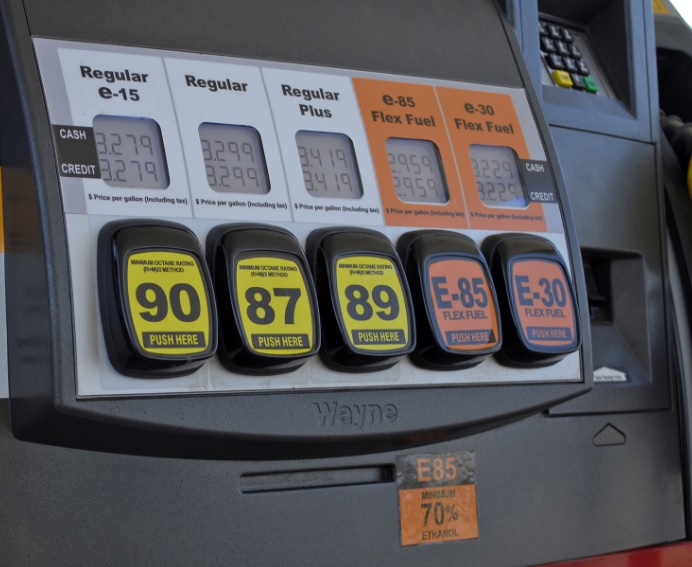 from $2.490 a month ago. Diesel is at $2.998, up from $2.509 a year ago and $2.893 a month ago. As for the price of a barrel of oil, West Texas Intermediate (WTI) crude oil has gone up from $53.01 on Feb. 6, 2017 to $64.73 today.
from $2.490 a month ago. Diesel is at $2.998, up from $2.509 a year ago and $2.893 a month ago. As for the price of a barrel of oil, West Texas Intermediate (WTI) crude oil has gone up from $53.01 on Feb. 6, 2017 to $64.73 today. Green Score of 64. Winners of the award issued annually by the American Council for an Energy-Efficient Economy (ACEEE) earn a high Green Score rating based on an environmental damage index (EDX). The index estimates pollution from vehicle manufacturing, the production and distribution of fuel, and vehicle tailpipes. ACEEE found that what makes this year’s award winner and others on the top ranking stand out is affordable, efficient, tech-smart vehicles that are now on the market, offering consumers plenty of options for buying a greener vehicle. The Ioniq was acknowledged for bringing high efficiency in a practical size. The Mercedes-Benz Smart Fortwo Electric Drive, BMW i3, Kia Soul Electric, Ford Focus Electric, and Honda Clarity also took places among the greenest vehicles on the market. ACEEE also issued the Meanest List leaning toward large SUVs, loaded pickup trucks, heavier medium-duty vehicles, and European luxury cars that are the least friendly to the environment. The Mercedes Benz G550 took the lowest score of 19.
Green Score of 64. Winners of the award issued annually by the American Council for an Energy-Efficient Economy (ACEEE) earn a high Green Score rating based on an environmental damage index (EDX). The index estimates pollution from vehicle manufacturing, the production and distribution of fuel, and vehicle tailpipes. ACEEE found that what makes this year’s award winner and others on the top ranking stand out is affordable, efficient, tech-smart vehicles that are now on the market, offering consumers plenty of options for buying a greener vehicle. The Ioniq was acknowledged for bringing high efficiency in a practical size. The Mercedes-Benz Smart Fortwo Electric Drive, BMW i3, Kia Soul Electric, Ford Focus Electric, and Honda Clarity also took places among the greenest vehicles on the market. ACEEE also issued the Meanest List leaning toward large SUVs, loaded pickup trucks, heavier medium-duty vehicles, and European luxury cars that are the least friendly to the environment. The Mercedes Benz G550 took the lowest score of 19.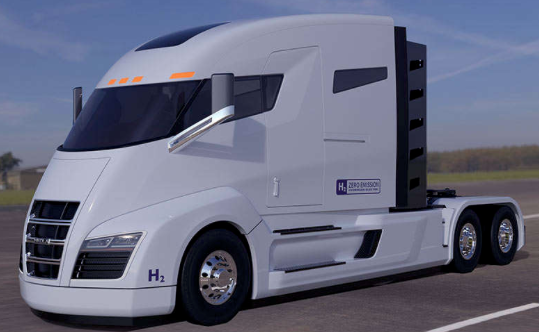 plans to build
plans to build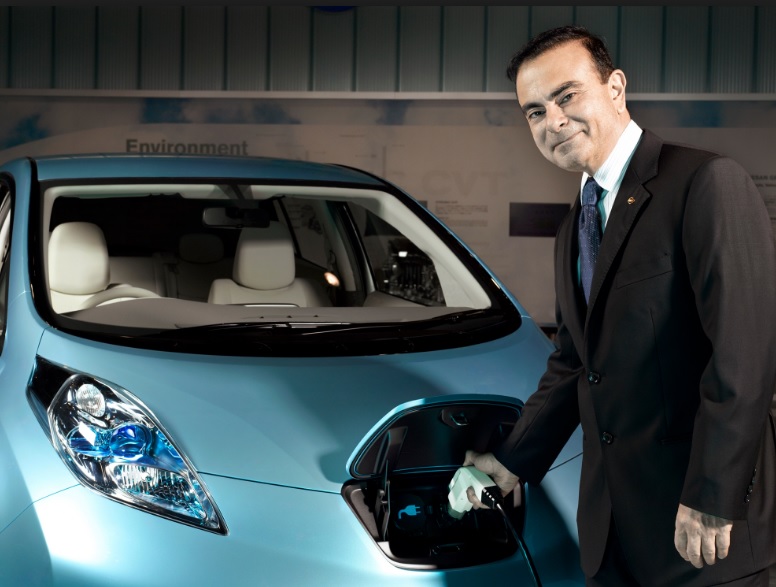 during 2017. That was made up of 10.61 million new vehicles sold last year with Nissan bringing in 5.82 million, Renault 3.76 million, and its Mitsubishi subsidiary (acquired in 2016) selling 1.03 million. VW came in at 10.53 million and longtime winner Toyota Motor sold 10.2 million. CEO Carlos Ghosn has pledged to tap into economies of scale and double savings by 10 billion euros ($12 billion) by 2022. That assumes annual sales will rise to 14 million vehicles. Sharing parts and consolidating platforms is the foundation it’s being built on, as it usually cuts r&d and manufacturing costs. The Alliance will be rolling out 12 new all-electric models using common platforms by 2022, Ghosn said late last year. Plug-in hybrid models will also be utilized, coming from Mitsubishi’s experience with the Outlander PHEV. Two other utility plug-in hybrids will be coming to market over the next two years. The alliance companies have collectively already sold more than a half million plug-in electrified vehicles.
during 2017. That was made up of 10.61 million new vehicles sold last year with Nissan bringing in 5.82 million, Renault 3.76 million, and its Mitsubishi subsidiary (acquired in 2016) selling 1.03 million. VW came in at 10.53 million and longtime winner Toyota Motor sold 10.2 million. CEO Carlos Ghosn has pledged to tap into economies of scale and double savings by 10 billion euros ($12 billion) by 2022. That assumes annual sales will rise to 14 million vehicles. Sharing parts and consolidating platforms is the foundation it’s being built on, as it usually cuts r&d and manufacturing costs. The Alliance will be rolling out 12 new all-electric models using common platforms by 2022, Ghosn said late last year. Plug-in hybrid models will also be utilized, coming from Mitsubishi’s experience with the Outlander PHEV. Two other utility plug-in hybrids will be coming to market over the next two years. The alliance companies have collectively already sold more than a half million plug-in electrified vehicles.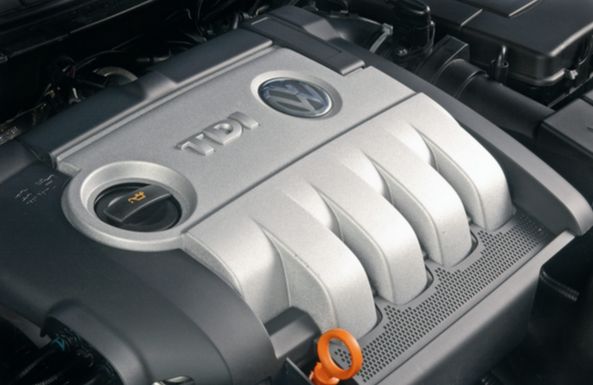 Thomas Steg, today in response to reports that the company and two competitors had sponsored tests that exposed monkeys and humans to toxic diesel fumes. The company had come under scrutiny again last week after The New York Times reported that VW, BMW, and Daimler had funded an organization called European Research Group on Environment and Health in the Transport Sector (EUGT) to carry out the tests. These methods used in the U.S. were wrong, unethical, and repulsive, VW CEO Matthias Mueller said Monday. The study had been conducted in 2014 to defend diesel following reports that diesel car fumes were carcinogenic. The EUGT study had been dissolved last year. This news was revealed right after Germany’s KBA automotive watchdog has detected illicit emission-control software in Audi’s latest Euro-6 diesel models. KBA has ordered a recall of these 127,000 vehicles, putting more pressure on parent company VW to comply with government mandates in the U.S. and Europe.
Thomas Steg, today in response to reports that the company and two competitors had sponsored tests that exposed monkeys and humans to toxic diesel fumes. The company had come under scrutiny again last week after The New York Times reported that VW, BMW, and Daimler had funded an organization called European Research Group on Environment and Health in the Transport Sector (EUGT) to carry out the tests. These methods used in the U.S. were wrong, unethical, and repulsive, VW CEO Matthias Mueller said Monday. The study had been conducted in 2014 to defend diesel following reports that diesel car fumes were carcinogenic. The EUGT study had been dissolved last year. This news was revealed right after Germany’s KBA automotive watchdog has detected illicit emission-control software in Audi’s latest Euro-6 diesel models. KBA has ordered a recall of these 127,000 vehicles, putting more pressure on parent company VW to comply with government mandates in the U.S. and Europe.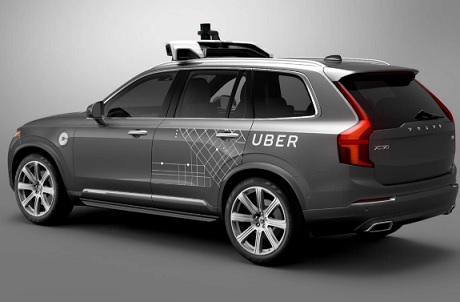 familiar with the matter told Reuters that BMW has bought out its partner, German car rental company Sixt, from its joint venture that had backed the DriveNow car-sharing unit. The two automakers are talking about a new JV that would offer car sharing, ride-hailing, electric vehicle charging, and digital parking services. Daimler’s Car2Go has had a strong presence in Europe and the U.S., and DriveNow has been growing in these regions. Ride-hailing itself is expected to be a $285 billion segment by 2030 once self-driving ride-hailing services are in place, according to Goldman Sachs. A senior executive at one of the two German carmakers who declined to be named said the new JV “will create an ecosystem which can also be used for managing robotaxi fleets.”
familiar with the matter told Reuters that BMW has bought out its partner, German car rental company Sixt, from its joint venture that had backed the DriveNow car-sharing unit. The two automakers are talking about a new JV that would offer car sharing, ride-hailing, electric vehicle charging, and digital parking services. Daimler’s Car2Go has had a strong presence in Europe and the U.S., and DriveNow has been growing in these regions. Ride-hailing itself is expected to be a $285 billion segment by 2030 once self-driving ride-hailing services are in place, according to Goldman Sachs. A senior executive at one of the two German carmakers who declined to be named said the new JV “will create an ecosystem which can also be used for managing robotaxi fleets.”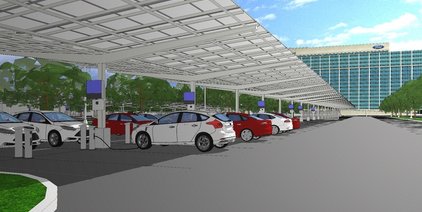 the prestigious
the prestigious  that the company’s market valuation will be more than 10 times larger than it is today. The company announced that it has started a 10-year CEO performance package based entirely on the automaker’s market cap growing from the current level of $50 billion to more than $650 billion over the next decade. A similar program had been enacted in 2012, with Musk more than hitting the mark.
that the company’s market valuation will be more than 10 times larger than it is today. The company announced that it has started a 10-year CEO performance package based entirely on the automaker’s market cap growing from the current level of $50 billion to more than $650 billion over the next decade. A similar program had been enacted in 2012, with Musk more than hitting the mark. 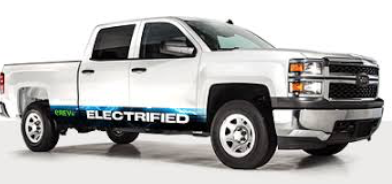 mercial vehicles, starting with
mercial vehicles, starting with  bridges. New York City would be joining other metros like London, Milan, Stockholm, and Singapore that have enacted similar charges. China is taking similar actions to address thick traffic congestion and severe air pollution. Manhattan is known for some of the worst traffic in the nation, with average speed in the Midtown area estimated to be at 4.7 miles per hour.
bridges. New York City would be joining other metros like London, Milan, Stockholm, and Singapore that have enacted similar charges. China is taking similar actions to address thick traffic congestion and severe air pollution. Manhattan is known for some of the worst traffic in the nation, with average speed in the Midtown area estimated to be at 4.7 miles per hour.